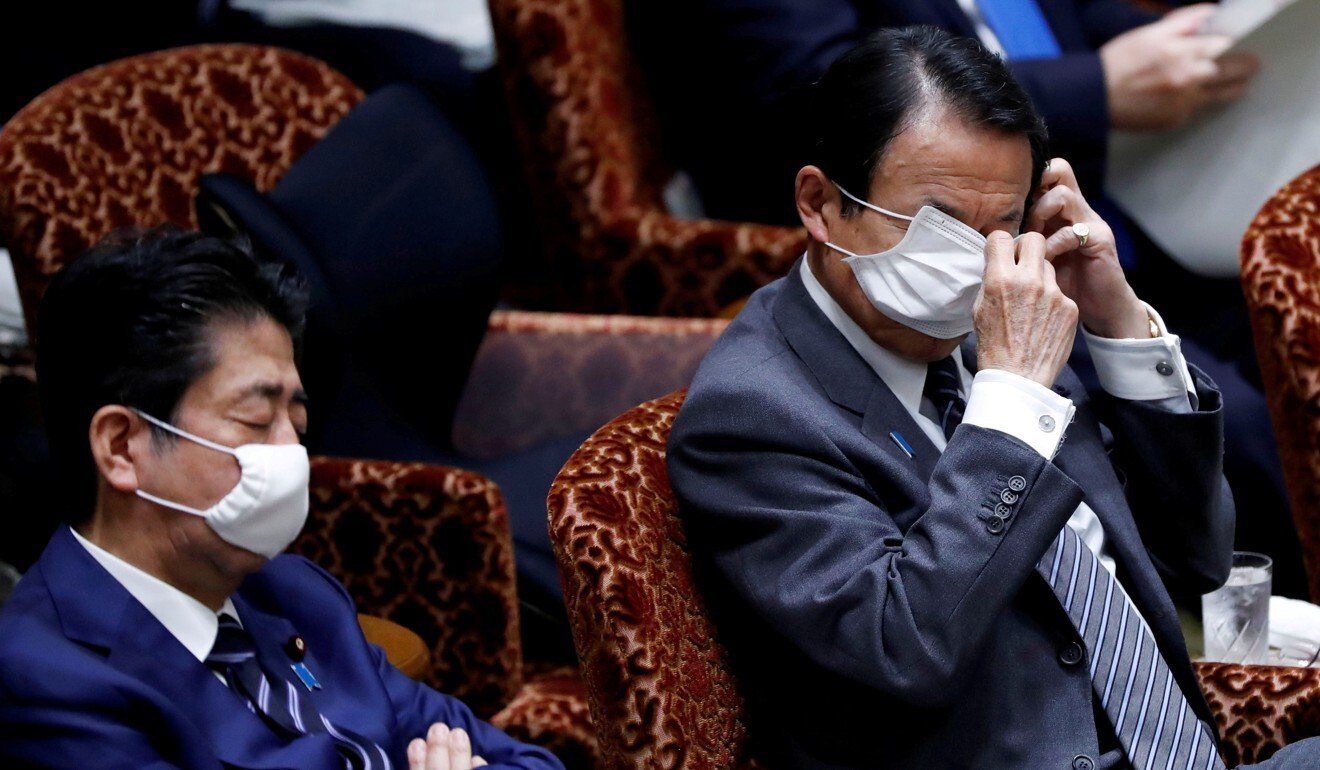
In its coronavirus response, Japan must not repeat the mistakes of its handling of the Fukushima nuclear disaster
- Japan may have opted to conduct only limited tests for Covid-19 to bolster the chances of the Olympics going ahead. Continuing this policy would be foolish
- The government was criticised for its opacity and mishandling of data after the 2011 Fukushima nuclear power plant meltdown. It must not repeat these mistakes
At root, the Japanese government has not approached the current pandemic as an epidemiological crisis. Instead, it has sought to manage it as an economic crisis and as a perilous public relations liability for Prime Minister Shinzo Abe’s government. This reactive, obstructionist approach is dangerous at a time when Japan needs real leadership to preserve lives.
Without robust testing, it is impossible to determine the scale of the outbreak, let alone reverse its toll.

After the disease was allowed to spread easily on the ship for weeks, some passengers who were allowed to disembark casually hailed taxis and rode public transport in Yokohama, possibly leading to further contagion.
For months, Japan appeared to have Covid-19 relatively under control, with significantly lower rates of infection than other countries despite having recorded its first case as early as January 16.
Japan PM gets social media roasting for offering free cloth masks
Japan has a robust national health system. It also benefited from some lucky outcomes, such as the coronavirus spreading at the height of the flu season, which seemed to cushion the spread of Covid-19.
Yet intentionally limited testing, possibly to put the nation’s best foot forward for the Olympics, gave Japanese a false sense of security. The Abe government mandated that just a small number of public health facilities could test for the virus, and only five approved companies were allowed to process the samples.
Moreover, the current figure of 178 dead is almost certainly an undercount and misleading. The government hasn’t released the figures on recent pneumonia fatalities, a critical metric both for assessing the pandemic and the state’s handling of the crisis.
Is Japan acting boldly or simply muddling through?
At the time, the state seemed incapable of admitting the true scale of the challenge posed by the tsunami and the power plant’s radioactive fallout.
The extent of the radioactive threat to communities was played down to avert panic and deflect blame. Evacuation orders and the very dimensions of the exclusion zone were minimised to avoid affecting large nearby cities, such as Koriyama, with expensive and debilitating measures.
Shinjiro Koizumi says Japan should scrap nuclear reactors after Fukushima
However, radiation is far easier to measure and assess from afar than viral infections like Covid-19. A radioactive plume was detected by American warships located off the coast of Fukushima.
The current crisis lacks such stark, devastating signalling. Nevertheless, it is clear the Japanese state has reverted to the same reflexes of distorting science to influence the data.
Last week, the government announced a plan to battle overseas “misinformation” with artificial intelligence-driven algorithms, analysing social media traffic on platforms like Twitter and responding with “correct” information. Rather than trying to control the international narrative, it would be far better for Japan to use AI to analyse epidemiological data to improve the nation’s response to the spread of the coronavirus.
During the early months of the outbreak, control has been illusory. While Tokyo struggled to hold onto the Summer Olympics, Covid-19 spread. Now, across the world in America, New York has paid prisoners to dig mass graves for infected corpses, and over 80 refrigerated container trucks are used to store the bodies of deceased patients at overwhelmed hospitals.
Japan must stop playing games with the data and start displaying bold leadership to avert such carnage in Japan’s capital.
Peter Wynn Kirby is a Japan specialist at the University of Oxford. He is the author of Troubled Natures: Waste, Environment, Japan

